It was nearly 9pm when fashion photographer Carlos Khu checked into a nondescript hotel along a strip of hip cafes and bars in downtown Kuala Lumpur. As Lady Gaga’s Bad Romance played in full blast in the background, the 29-year-old put on a neon pink wig, sky-high heels, leather straps, and squeezed into a pair of black leotards. Finishing the look with some bright red lipstick, Khu then kissed himself goodbye in the mirror and introduced Kumela Kumslut to the night.
It was like a scene from the movies or at one of New York City’s drag bars, but Khu was in none of those. Instead, he was in Malaysia, one of a handful of countries in the world where cross-dressing is banned for Muslims. The Islamic law has even been applied to transgender individuals.
Although Khu is not Muslim, he and others like him have not been spared from the eyes of the law and the wrath of conservative Muslims. In recent years, police have raided a local LGBTQ-friendly bar and sentenced Muslim transgender women to jail for “cross-dressing.” Being out and proud on social media also opens one to backlash from homophobes.
“It is very sad and ridiculous that such a law even exists in our country for something so harmless and innocent. Some people need to stop telling other people how they should put on their clothes and mind their own business,” Khu told Coconuts recently. Local Islamic laws also ban same-sex marriages and gay sex.
Before COVID-19, Khu had been performing as Kumela Kumslut at the Pisco Bar in the Bukit Bintang nightlife district since last year. Along with fellow queens Just Acne, Carmen Rose, and Cik Teh Botol, the provocative and comedic group is the star of the Spanish bar’s monthly Shagrilla event, where they lip-sync and dance against a backdrop of confetti, glitter, and disco lights.

Due to the strict laws and police surveillance, Malaysia’s drag queens generally prefer to remain under the radar. But that has not stopped the community from growing. In the past two decades, the country has seen prominent queens such as Khu, Licka Lolly, and Patrisya Anggun who have amassed thousands of fans. A sign that people could still find their way around the laws.
Despite the ban on cross-dressing, Malaysia does not prohibit bars that welcome drag queens. It has not stopped prominent gay bar Blue Boy from operating after it opened 30 years ago, or sentenced popular entrepreneur and transgender woman Nur Sajat to jail. Sajat is still registered in Malaysia under the male name she was born with as it is not possible to update the gender in public records.
Meanwhile, in the ultra-conservative Kelantan state, nine transgender women were sentenced to a month’s jail and RM 1,000 (US$250) fines in 2015 under the “anti-cross dressing” law.
A ‘gray area’
LGBTQ-friendly bars have long been considered to be safe spaces for drag queens as well as transgender individuals in Malaysia’s capital.
Pisco Bar has been hosting Shagrilla nights since last September, opening its doors to guests who also come dressed according to themes like “Think Pink,” “Dungeons and Drag Queens,” and “Life Imitates Art,” while neighboring Blue Boy has been around since the 1980s, hosting shows by its resident group of six drag queens known as The Outrageously Blueboy Cabaret on Friday, Saturday, and Sunday nights.
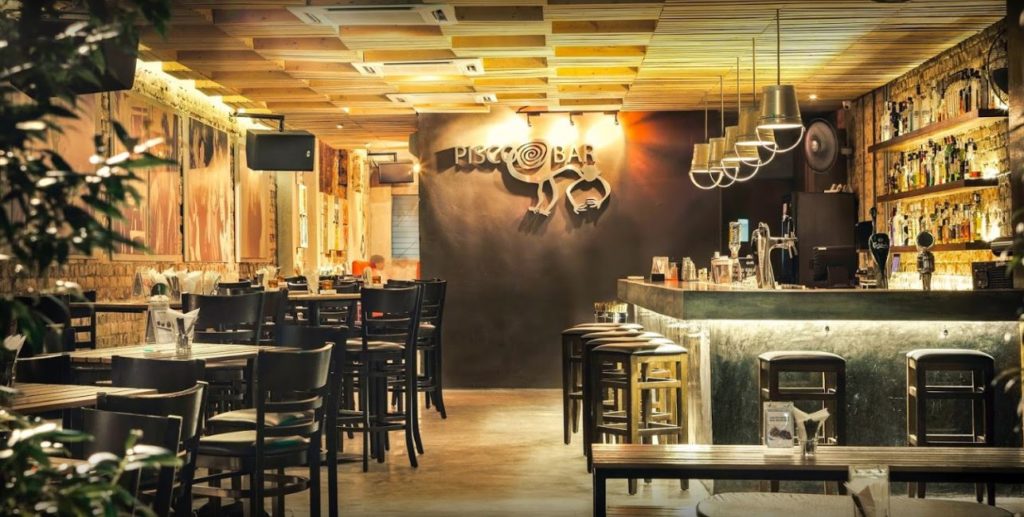
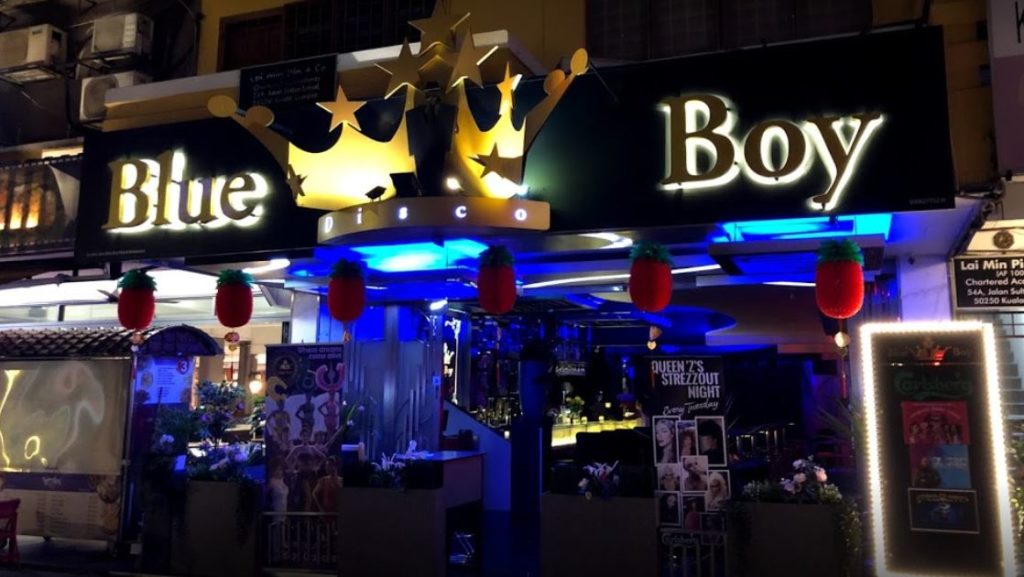
For Just Acne, whose real name is Hammada Bamadhaj, these are sacred spaces where he can let his hair down. He co-hosts and helps to organize the monthly Shagrilla events.
“We want it to be a safe space where people can express themselves, no matter if they’re straight or part of the rainbow family,” Hammada, 25, told Coconuts through a video interview, dressed as a leopard with electric blue hair that glowed against his purple lit bedroom.
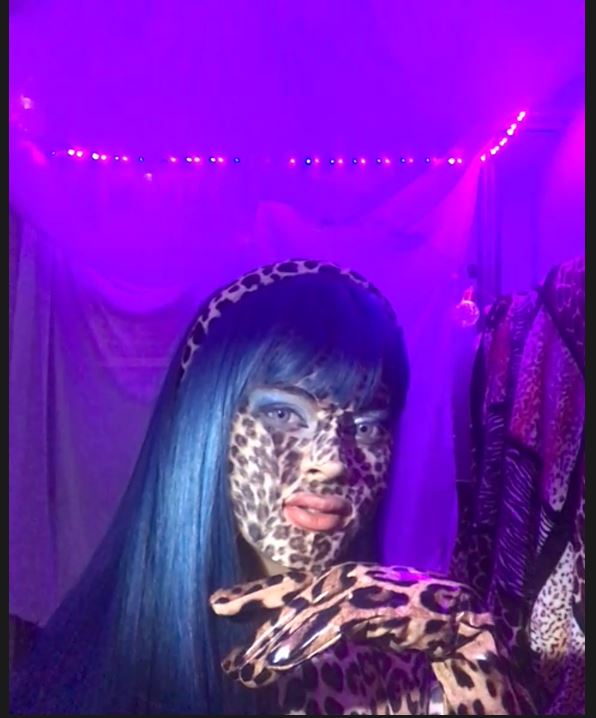
“It’s also like my stage where I get to 100% be myself, as Just Acne, and put Hammada and his worries behind me. I’m also in charge of the decorations and themes,” he added. He worked as a makeup artist and was in 2019 named Malaysia’s winner of a makeup competition by Los Angeles-based cosmetics company NYX.
Growing up in a Muslim household, Hammada did not let religion get in the way of his true self.
“There are people out there who think they have a say in how someone lives their life. It infuriates me because we don’t want to hide,” he said. He has not had to deal with the authorities so far.
But the future of these safe spaces seemed uncertain lately. Just two years ago, the police and religious authorities raided Blue Boy for the first time as part of efforts to “stop the spread of LGBTQ culture.” Twenty people were sent for religious counseling and the bar was later allowed to resume operations. The management did not respond to Coconuts’ request via email for an interview or comment.
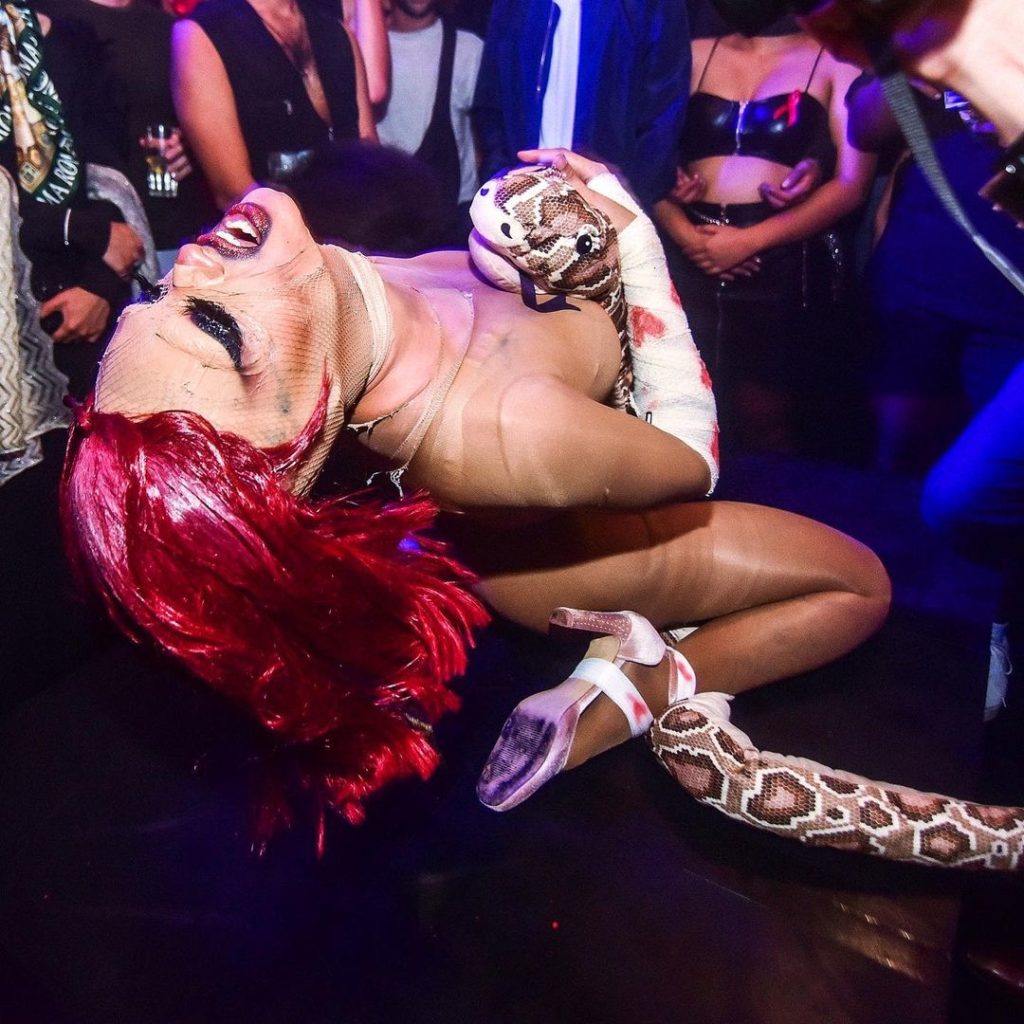
“It’s a very gray area,” Carmen Rose, whose real name is Samuel, said about how gay bars are being regulated. “We do it (share about events) very carefully. When we send out invitations, we only send them out to the people that we know would enjoy it and not advertise publicly.”
Even major companies have hired drag queens to perform at private corporate events, according to him, but declined to name those firms.
“Sometimes companies like big, private companies have events where they hire drag queens to perform for them,” he said.
The sense of ambiguity applies to the way anti-cross dressing is being enforced as well. Recently, Samuel said that he had walked past police officers three times but was never stopped for checks.
“If you are very female-passing, they don’t stop you. For trans women who have more masculine features, it’s difficult for them to pass, because the police would think that they are not female,” the graphic designer said.
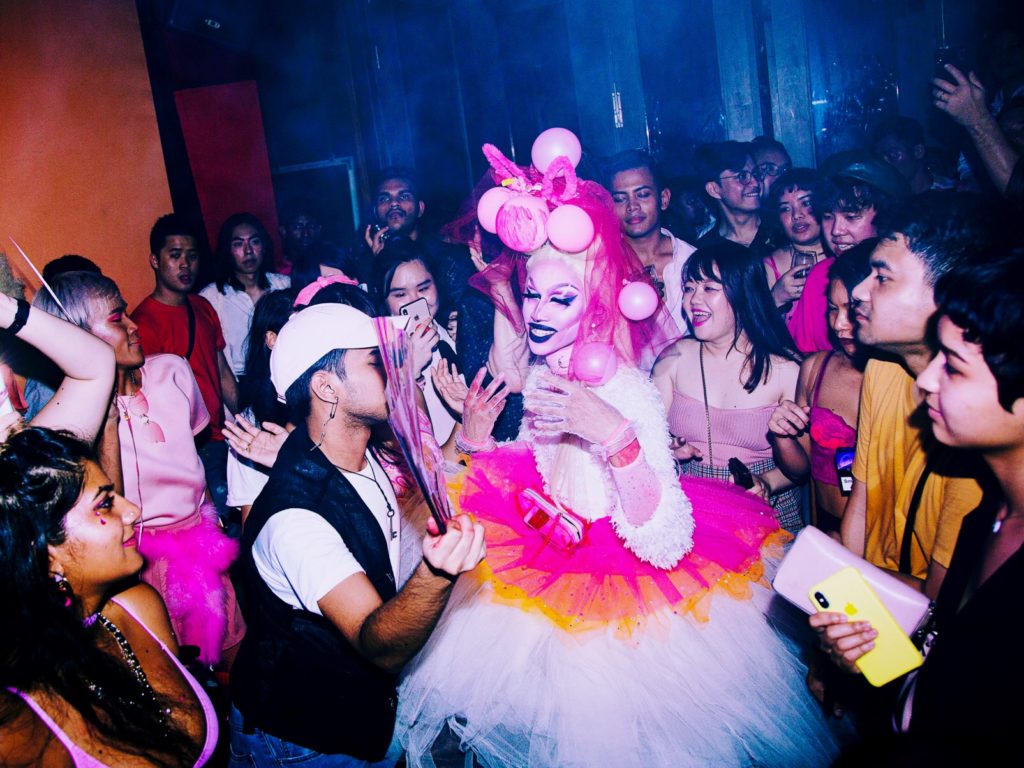
Female passing or not, Malaysia’s drag queens could still be targeted by homophobes on social media. Back in May, Samuel and several other queens faced backlash over an Instagram video showing him and about 20 other drag queens taking part in the social media challenge “pass the brush.” The five-minute clip showed them transforming into fabulous-looking queens to the sound of Ru Paul’s Drag Race.
“We received a lot of positive comments until religious people saw it and started threatening to call the police on us, and leaving us hate comments,” he said. “I had to delete their comments because I can’t allow them to just throw hate like that.”
“They were basically threatening us saying they know where we stay,” he added, but he can’t recall the exact words.
Some of those who appeared in the video later set their Instagram accounts to private or changed their usernames to help protect their identities.
Editor’s note: We have removed the last names of one of the subjects of this story.
Other stories to check out:
Man opens up on struggle with religion, homosexuality, and coming out in Mecca





Reader Interactions